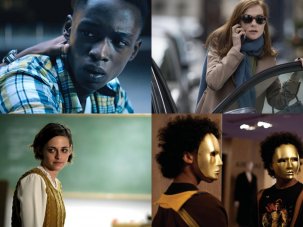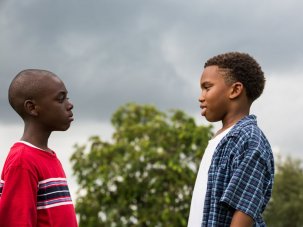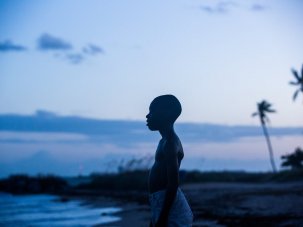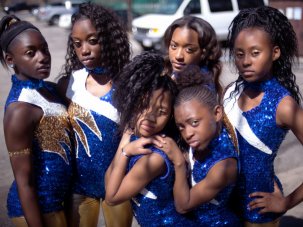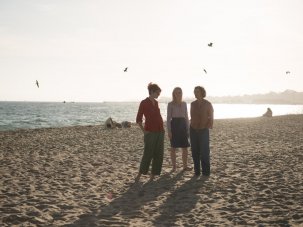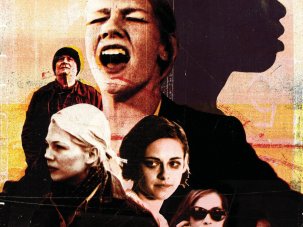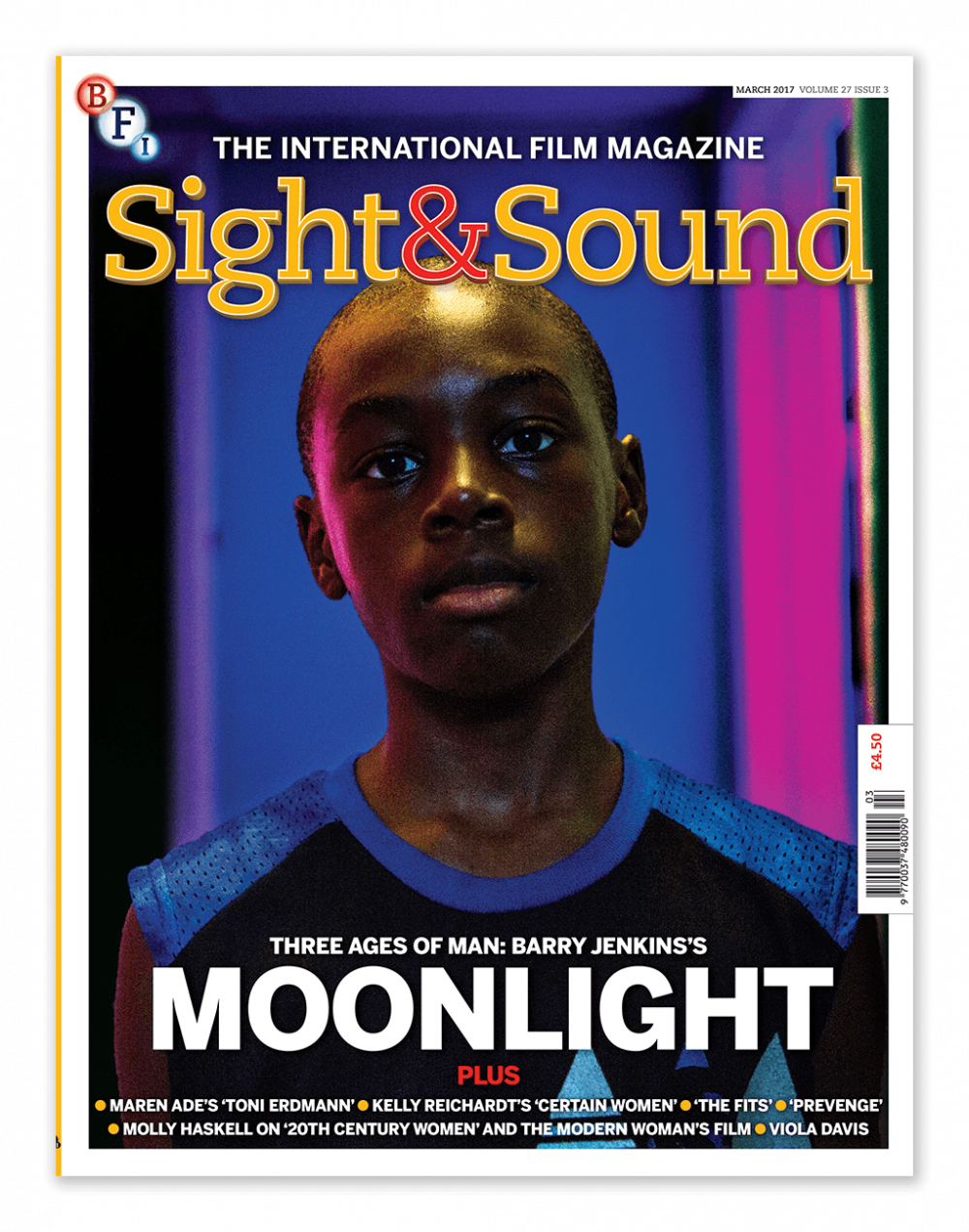
In these troubled times, Moonlight is a beacon of hope. Barry Jenkins’s lyrical triptych is a beautiful first-person odyssey about growing up growing up gay, black and poor in Miami. It already felt like vital, urgent cinema in the wake of the Black Lives Matter movement. But with the ascendency of the hyper-white-masculine Trump administration and its recent ‘Muslim ban’, Moonlight has become even more the film of the moment.
Posted to subscribers and available digitally 3 February
→ Buy a print copy
→ Access the digital edition
→
On UK newsstands 7 February
In a two-part interview conducted as Moonlight’s reputation grew and grew, Jenkins talks at length about this personal project, why he didn’t want to make a neorealist or miserable story out of Tarell Alvin McCraney’s play and how instead with this immersive, visually hypnotic film he’s used “the aesthetics of filmmaking to tap into the subconscious”. Meanwhile in this month’s editorial, Nick James makes a case for why, in this awards season, films like Moonlight should loom larger than the escapist fantasy La La Land. And in his monthly column Mark Cousins delves into cinema’s past in search of a film that mirrors “the slippery sickness of our political times”.
Our other features focus on no less timely subjects: Viola Davis, an actor who has long stolen scenes from the sidelines and who is now finally getting her due; Maren Ade, who with her unmissable comedy Toni Erdmann, has made a melancholy, intricate portrait of a father-daughter relationship and a biting critique of corporate capitalism and the condition of Europe; Kelly Reichardt’s Certain Women, an impeccably sketched study of four Montana women and another film alongside Toni Erdmann and Moonlight that topped our Best Films of 2016 poll; and Mike Mills’ 20th Century Women, in which, argues Molly Haskell, Annette Bening reigns supreme playing a single mother in the era of Jimmy Carter.
A note to the Academy: this is what the Oscar winners should look like.
Elsewhere, Mark Kermode pays tribute to novelist turned filmmaker William Peter Blatty, far more than just the author and screenwriter of The Exorcist; Anna Rose Holmer discusses her coming-of-age drama The Fits; the British macabre-maestro Alice Lowe talks no-budget filmmaking with her pregnant serial killer film Prevenge; Adrian Martin rediscovers German director Werner Schroeter; there’s our yearly celebration of the film world’s departed in 2016, and as always reviews of all the latest theatrical and home entertainment releases.
Features
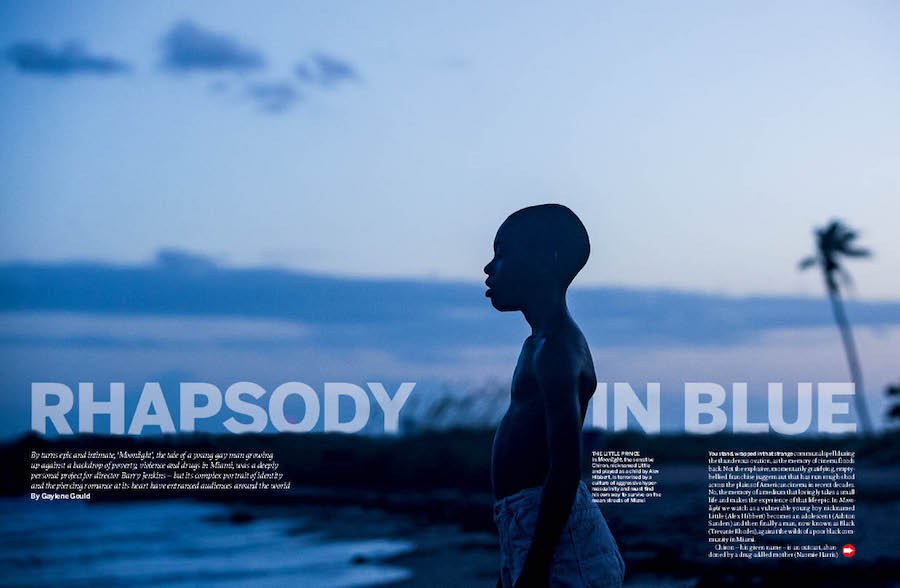
Rhapsody in Blue
By turns epic and intimate, Moonlight, the tale of a young gay man growing up against a backdrop of poverty, violence and drugs in Miami, was a deeply personal project for director Barry Jenkins – but its complex portrait of identity and the piercing romance at its heart have entranced audiences around the world. By Gaylene Gould.
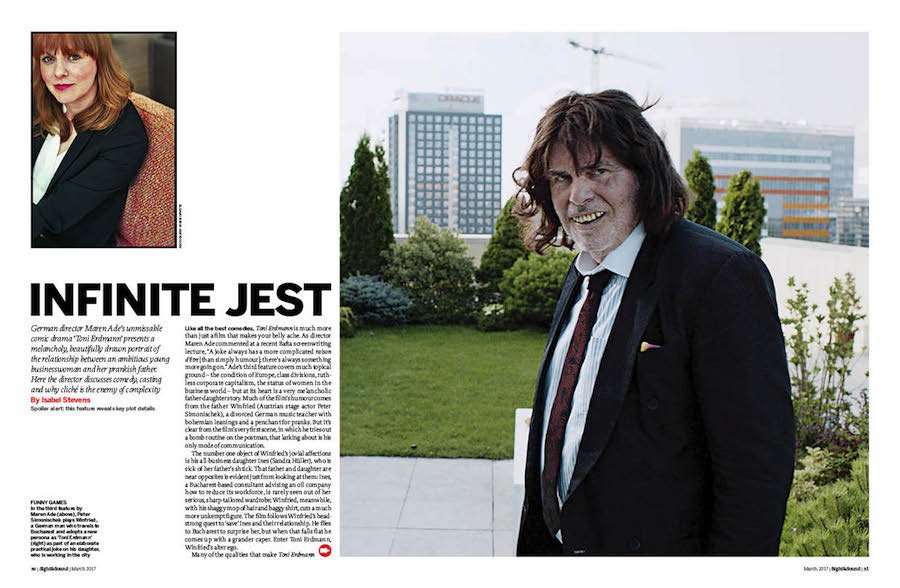
Infinite Jest
German director Maren Ade’s unmissable comic drama Toni Erdmann presents a melancholy, beautifully drawn portrait of the relationship between an ambitious young businesswoman and her prankish father. Here the director discusses comedy, casting and why cliché is the enemy of complexity. By Isabel Stevens.
+ 10 Great Father-Daughter Films
As Toni Erdmann shows, the joys, jealousies and sorrows engendered by this most interdependent of relationships offer rich dramatic and comic potential for filmmakers.
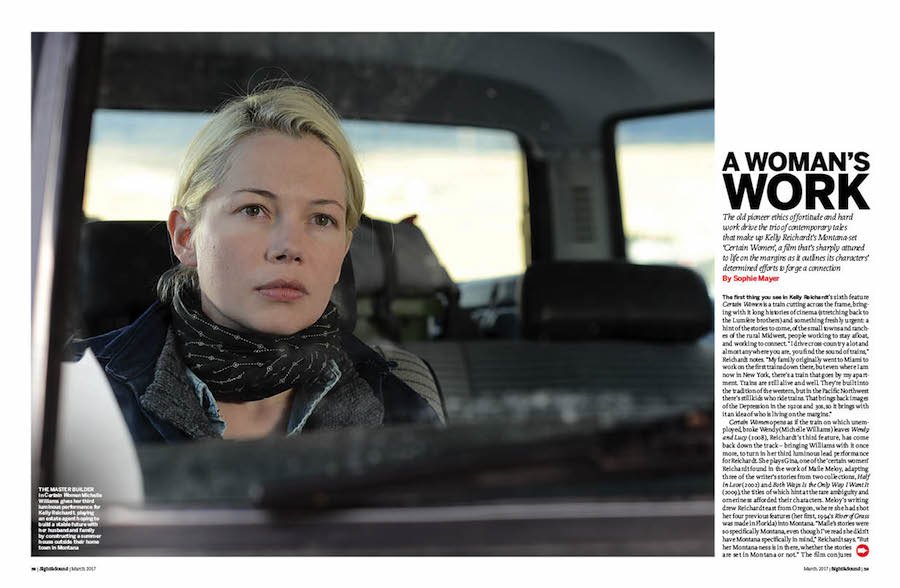
A Woman’s Work
The old pioneer ethics of fortitude and hard work drive the trio of contemporary tales that make up Kelly Reichardt’s Montana-set Certain Women, a film that’s sharply attuned to life on the margins as it outlines its characters’ determined efforts to forge a connection. By Sophie Mayer.
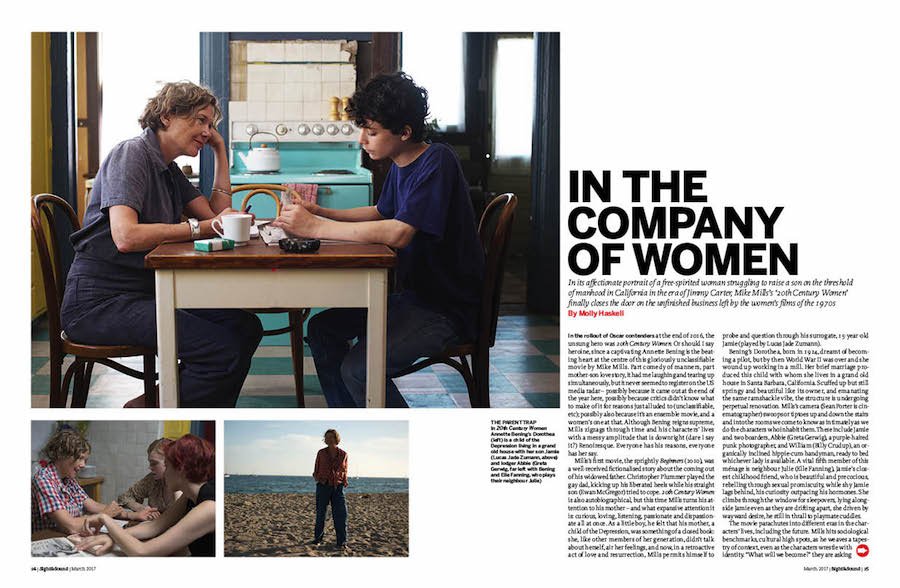
In the Company of Women
In its affectionate portrait of a free-spirited woman struggling to raise a son on the threshold of manhood in California in the era of Jimmy Carter, Mike Mills’s 20th Century Women finally closes the door on the unfinished business left by the women’s films of the 1970s. By Molly Haskell.
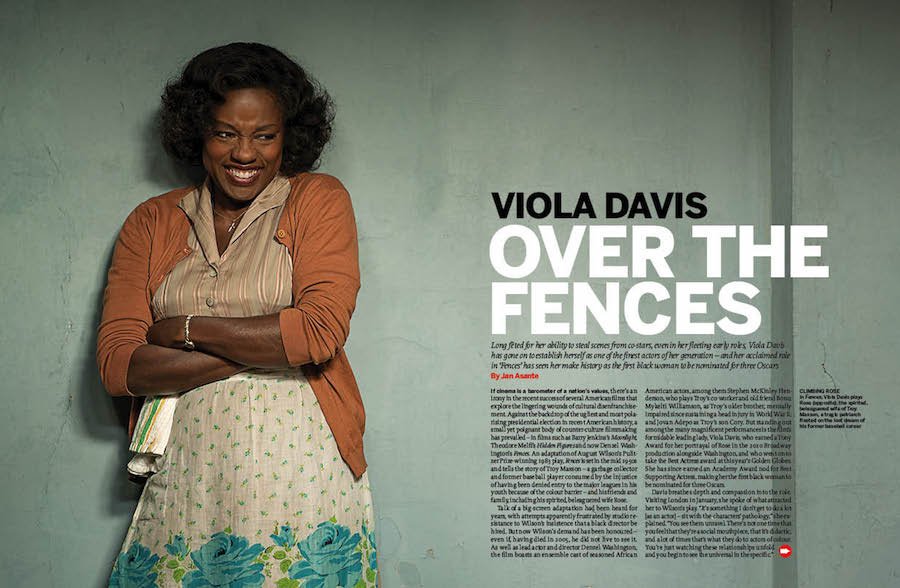
Long fêted for her ability to steal scenes from co-stars, even in her fleeting early roles, Viola Davis has gone on to establish herself as one of the finest actors of her generation – and her acclaimed role in Fences has seen her make history as the first black woman to be nominated for three Oscars. By Jan Asante.
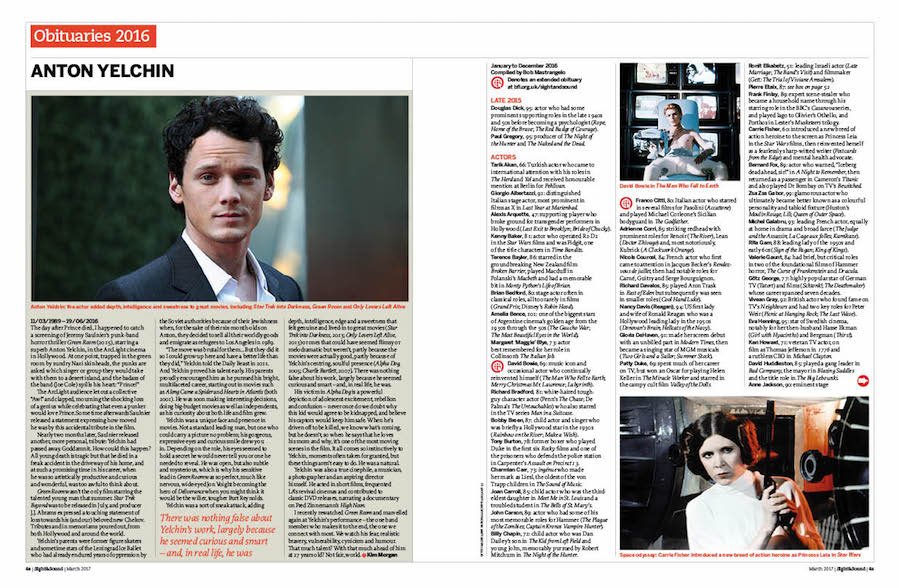
Obituaries 2016
Bob Mastrangelo’s roll-call of the film world’s departed in 2016, with profiles of Anton Yelchin, Michèle Morgan, Pierre Etaix, Debbie Reynolds and Vilmos Zsigmond.
Regulars
Editorial
La La Land, Moonlight and Hollywood under Trump
Rushes
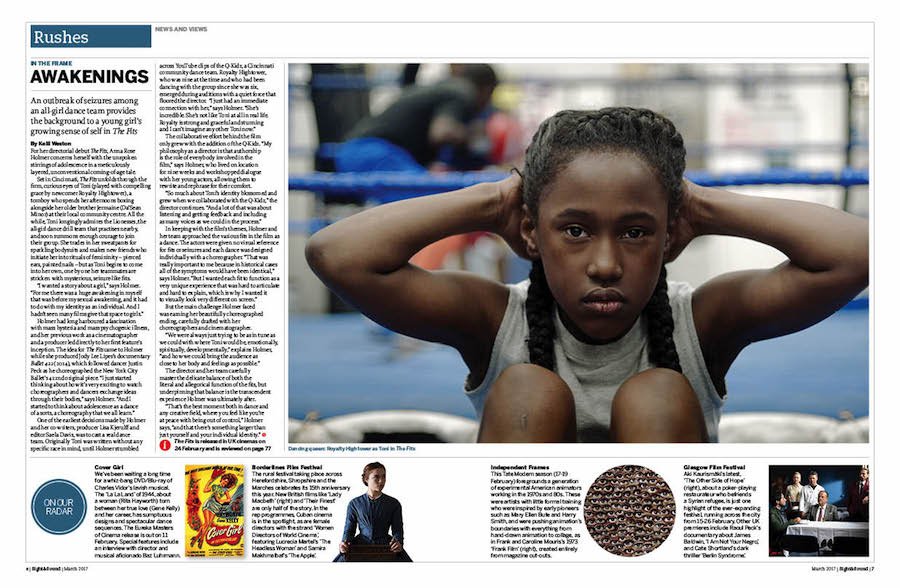
Our Rushes section
In the frame: Awakenings
An outbreak of seizures among an all-girl dance team provides the background to a young girl’s growing sense of self in The Fits. By Kelli Weston.
Object lesson: Guiding lights
Spark of inspiration, flicker of evil, cold light of reality… How many light bulbs does it take to change a film? By Hannah McGill.
Interview: Natural unborn killer
For Prevenge, her first feature as director, Sightseers star Alice Lowe is sticking with serial killing – but still defying expectations. By Anna Bogutskaya.
Dispatches: Cinema of anxiety
If you want to watch a film that speaks to the slippery sickness of our times, here’s a bold masterpiece that’s as extravagant as Fellini… By Mark Cousins.
Obituary: William Peter Blatty, 1928-2017
Though he was known as an author of horror, the keynotes of his personality were warmth and humour. By Mark Kermode.
The Industry
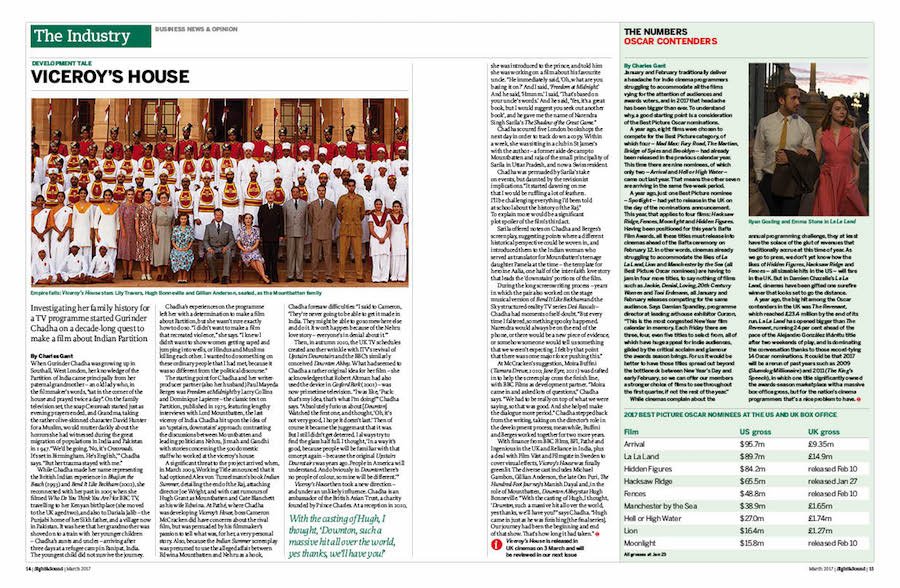
Our Industry section
Development tale: Viceroy’s House
Investigating her family history for a TV programme started Gurinder Chadha on a decade-long quest to make a film about Indian Partition. By Charles Gant.
The numbers
Oscar contenders and 2017 Best Picture Oscar nominees at the US and UK box office. By Charles Gant.
Wide Angle
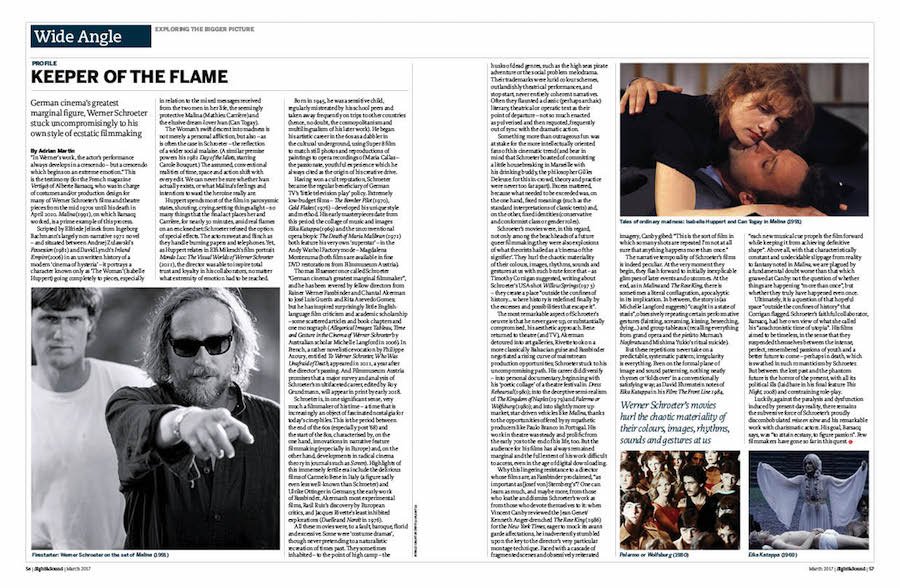
Our Wide Angle section
Profile: Keeper of the flame
German cinema’s greatest marginal figure, Werner Schroeter stuck uncompromisingly to his own style of ecstatic filmmaking. By Adrian Martin.
Soundings: Jazz, Italian style
The neorealists were wary of an American intrusion – but jazz still became a significant part of Italian film in the 50s and 60s. By Sam Davies.
Primal screen: The world of silent cinema
In the film world, operating a camera is still seen as man’s work. But in early cinema, women took every job going. By Pamela Hutchinson.
Profile: Melting pot
The films of Rita Azevedo Gomes, filled with layers, paradoxes and poetry, reinforce a conception of cinema built on friendship. By Cristina Álvarez López and Adrian Martin.
Archive: Reeling in the years
Cuba’s newsreels, newly restored, offer a remarkable record of state propaganda – but also of exciting, innovative filmmaking. By Olaf Möller.
Artists’ moving image: Landscapes of feeling
Laida Lertxundi’s short, self-reflexive, enigmatic and intensely beautiful fimls read like subtexts to stories waiting to be told. By Erika Balsom.

Our Reviews section
Reviews
Films of the month
It’s Only the End of the World
Le Parc
Resident Evil: The Final Chapter
The Student
plus reviews of
Assassin’s Creed
Best
Bitter Harvest
The Bye Bye Man
Certain Women
Close Relations (Rodnye)
Fences
The Fits
The Founder
Hidden Figures
iBOY
Live by Night
Lost in France
LoveTrue
Marauders
Moonlight
Patriots Day
Prevenge
Rats
Southern Fury
Split
Sweet Dreams
T2 Trainspotting
Toni Erdmann
Tower
Trespass Against Us
20th Century Women
Underworld: Blood Wars
xXx: Return of Xander Cage
Zer0 Days
Home Cinema features
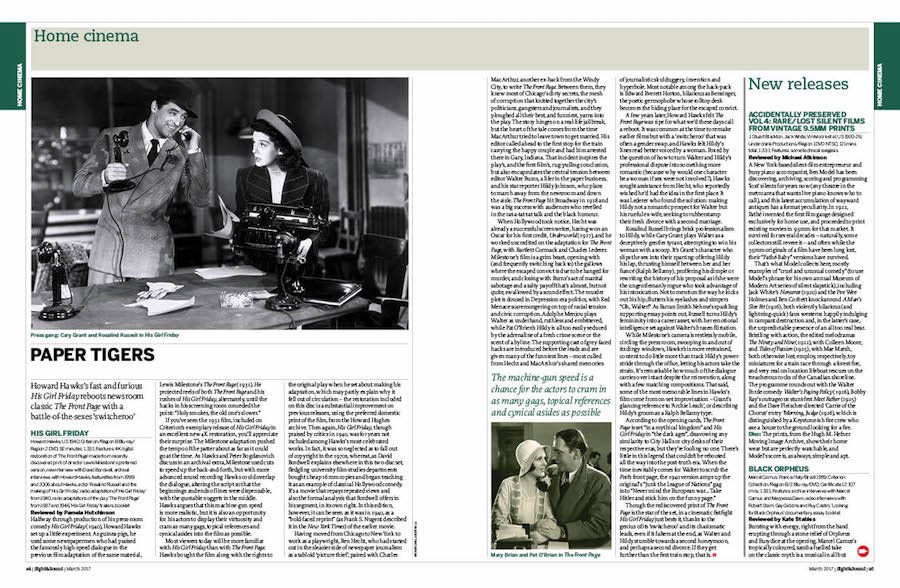
Our Home Cinema section
Paper tigers: His Girl Friday
Howard Hawks’s fast and furious screwball reboots newsroom classic The Front Page with a battle-of-the-sexes ‘switcheroo’. By Pamela Hutchinson.
Rediscovery: Films from the Hungarian Digital Film Archive
Michael Curtiz when he was still Mihály Kertész, newsreels of 1956 – the Hungarian Digital Film Archive is a treasure trove. By Michael Brooke.
Lost and found: Uptight
Mixing noir and neorealism, Jules Dassin’s drama tackles the alienation of black Americans amid the seismic upheavals of 1968. By Andrew Nette.
plus reviews of
Accidentally Preserved Vol 4
Black Orpheus
Black Society Trilogy
Body Double
Das Cabinet des Dr Caligari
Christine
Daisy Kenyon
The Hired Hand
Metropolis
Sacrifice!
Something Wild
Toshiaki Toyoda: The Early Years
Varieté
Television
Robert Hanks revisits James Burke’s Connections and Paolo Sorrentino’s The Young Pope
Books
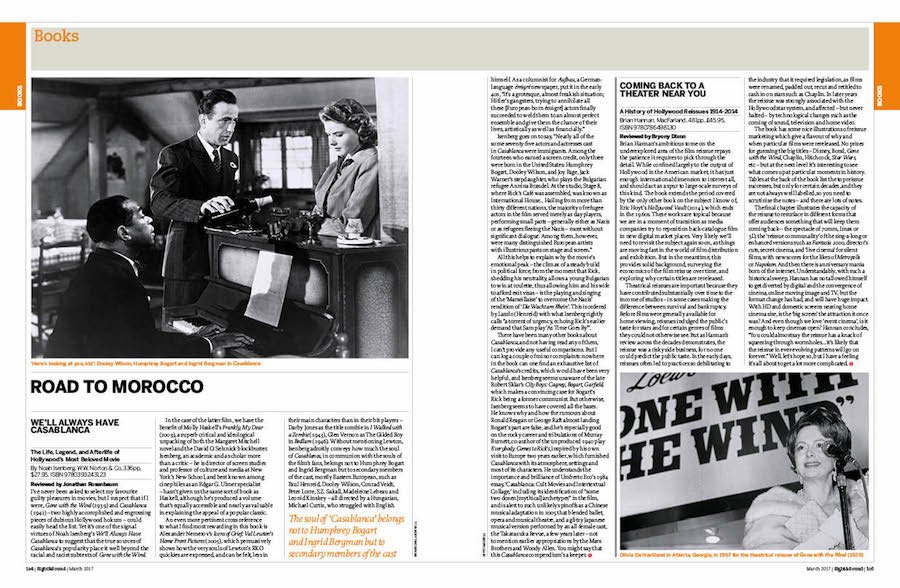
We’ll Always Have Casablanca: The Life, Legend, and Afterlife of Hollywood’s Most Beloved Movie by Noah Isenberg (W.W. Norton & Co) reviewed by Jonathan Rosenbaum
Coming Back to a Theater Near You: A History of Hollywood Reissues 1914-2014 by Brian Hannan (MacFarland) reviewed by Bryony Dixon
Dan Duryea: Heel with a Heart by Mike Peros (University Press of Mississippi) reviewed by Philip Kemp
Jazz as Visual Language Film, Television and the Dissonant Image by Nicolas Pillai (I.B. Tauris) reviewed by Ehsan Khoshbakht
Letters
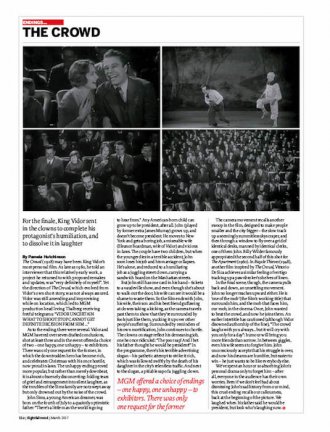
Our Endings section
Tap dancing gangsters redux
Arrival’s departure from the boring bits of its source novel
D.H. Lawrence’s Figs from Birds, Beasts and Flowers to Women in Love
The Polish films at last year’s Pordenone silent film festival
The royals and their options
Endings
The Crowd
For the finale, King Vidor sent in the clowns to complete his protagonist’s humiliation, and to dissolve it in laughter. By Pamela Hutchinson.
Further reading
-
The Digital Edition and Archive quick link
Log in here to your digital edition and archive subscription, take a look at the packages on offer and buy a subscription.




